Fruitarian Menu
Featuring dishes within the vegan subset using exclusively fruits of various flavors
A fruitarian diet is a type of diet that primarily consists of fruits, nuts, and seeds. Contrary to how the term may sound, a fruitarian diet doesn't only consist of sweet fruit. The term fruit is commonly used to describe sweet produce, but fruit is actually any seed-bearing structure that comes from a flowering plant. Squash, pumpkin, peas, beans and rice are all examples of fruit and none are sweet. Seeds used in a fruitarian diet include quinoa, almonds and cashews. Of course the sweet fruits that are commonly referred to as fruit include berries such as blueberries, blackberries, raspberries, apples and pears. Carrots for example are produce which are definitively not fruit. However carrot plants do bear fruit once mature, though the fruit is not normally consumed by humans. People who follow a fruitarian diet avoid consuming animal products and generally any produce which has been sourced as a result of destroying the plant. The idea behind a fruitarian diet is to eat only foods that are plant-based and do not harm the plants or environment to harvest. Several factors are significant in a fruitarian diet, including styles of recipe preparation, nutritional value and aesthetics. At Chakra we put lots of energy into innovating recipes and making fruitarian dishes exceptional so that even those who are not exclusively vegan enjoy them with suprising enthusiasm.
Note: All dishes can be made nut-free, soy-free and without nightshades. Just ask!
Color Balanced Bowls
-
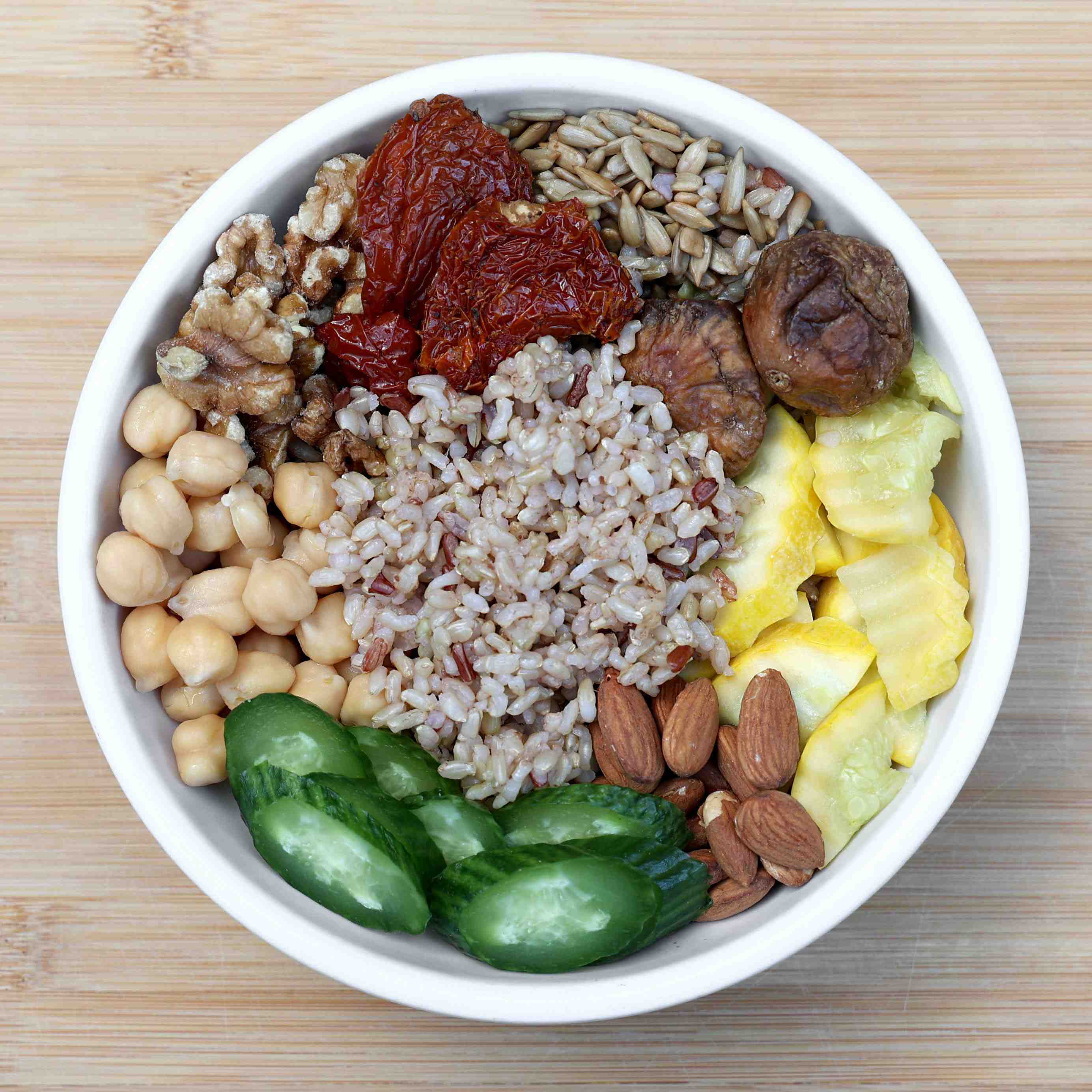
Sunshine Bowl 12
Brown-red rice, squash, walnuts, figs, cucumber, sun dried tomatoes, chickpeas, almonds and sunflower seeds.
-
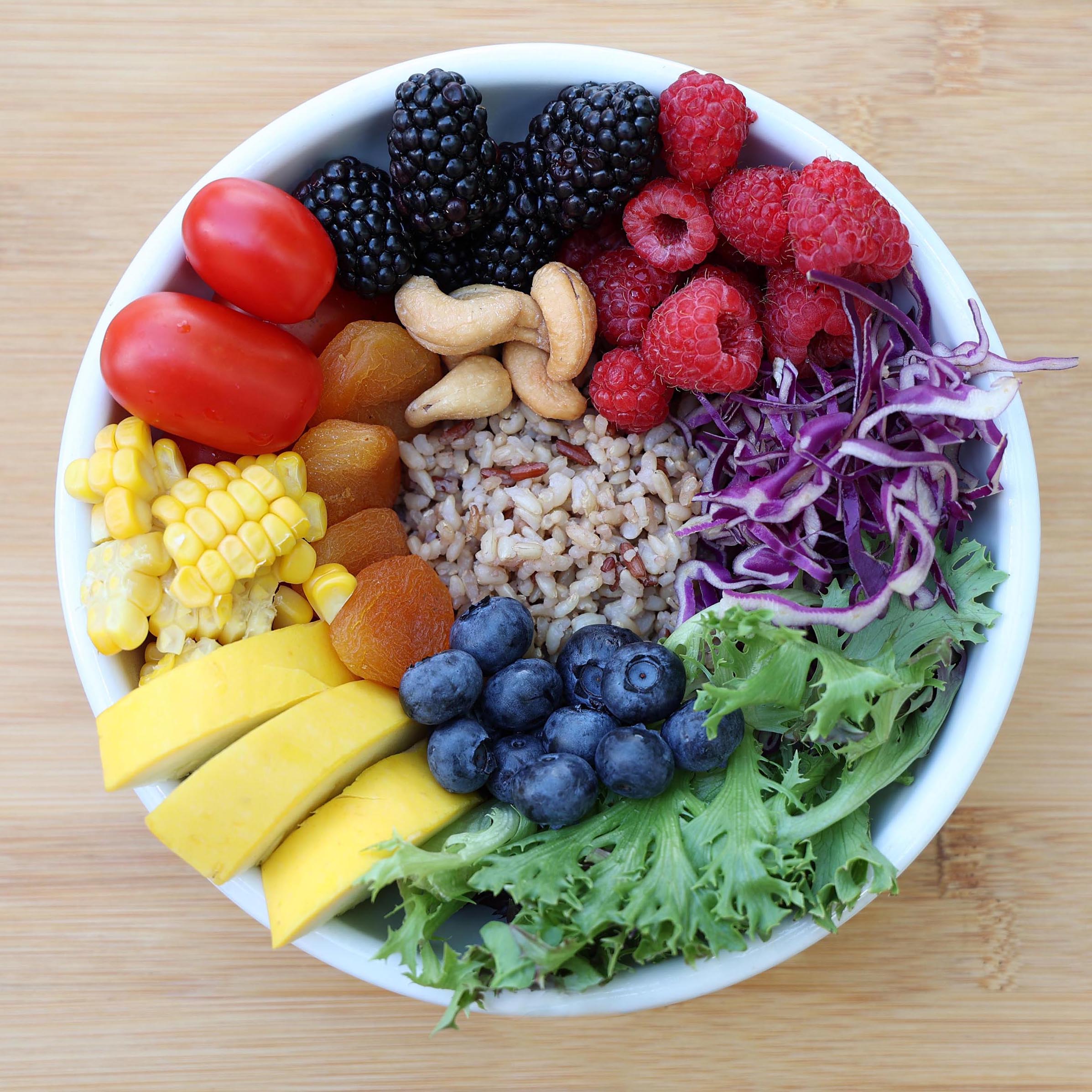
Rainbow Dragon Bowl 12
Brown-red rice, lettuce, tomato, cabbage, squash, tomato, dried apricot, corn and berries.
-
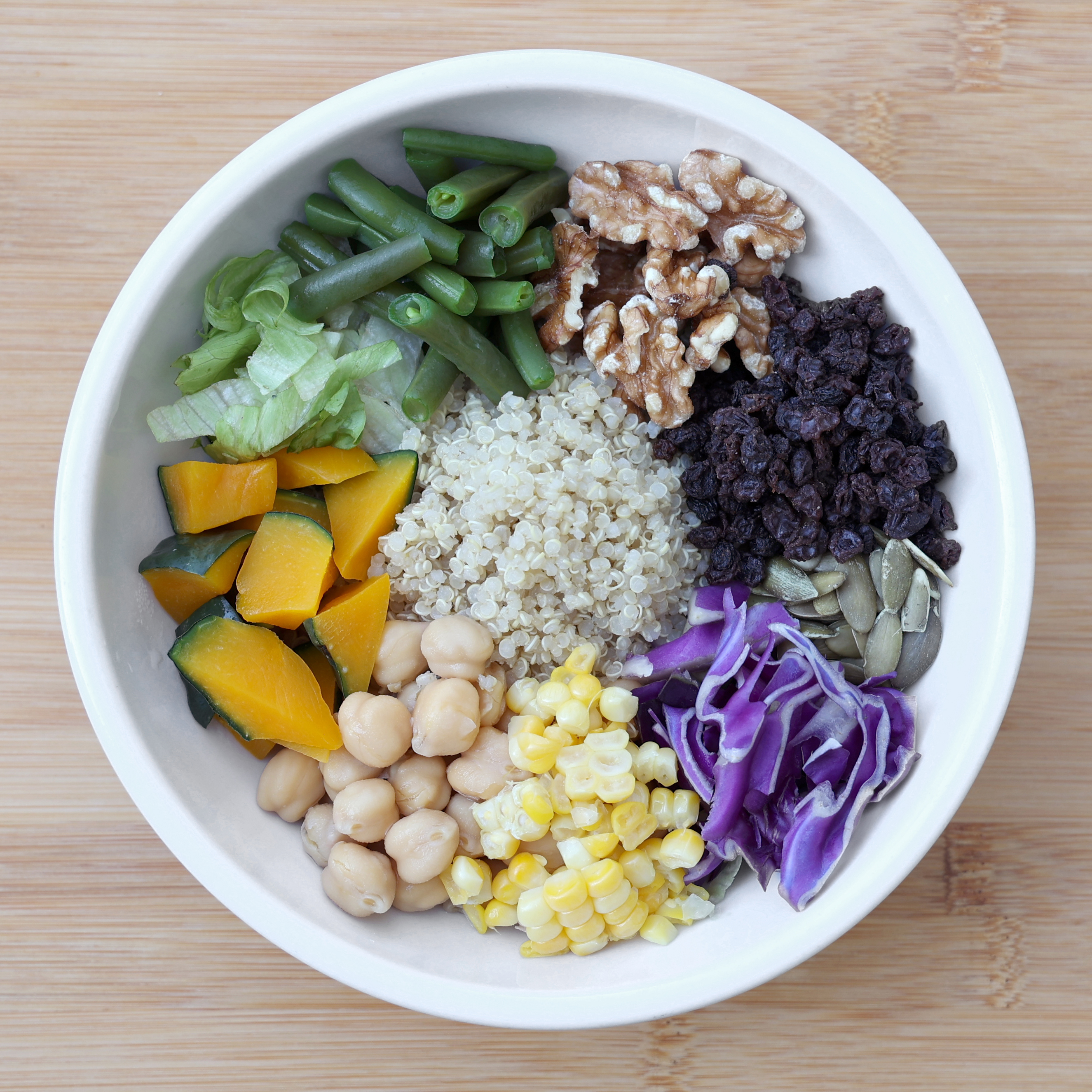
Quinoa Bowl 12
Quinoa, green beans, chickpeas, lettuce, cabbage, currants, almonds and pumpkin seeds.
-
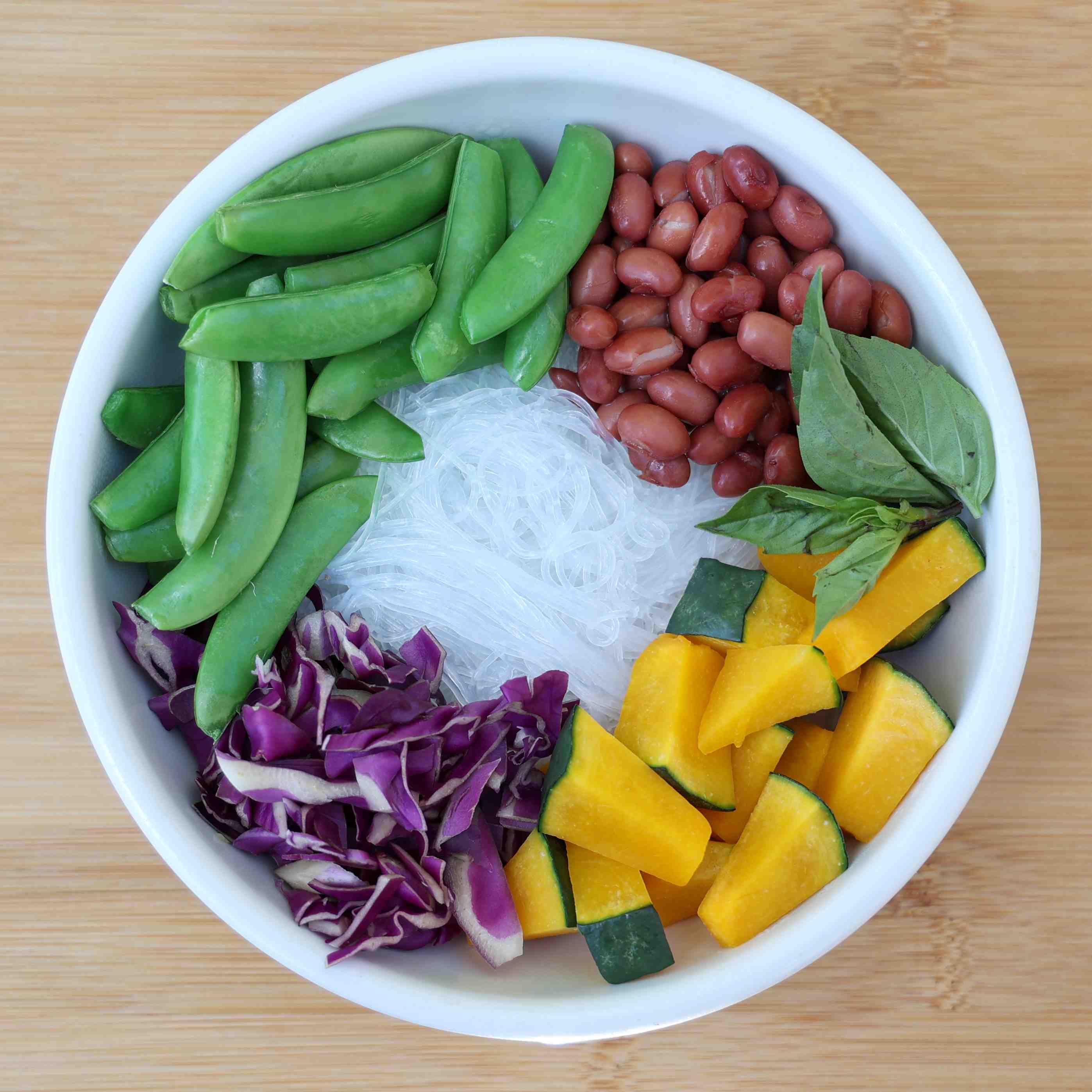
Noodle Bowl 12
Steamed mung bean noodles, kidney beans, peas, squash, and basil leaves.
-
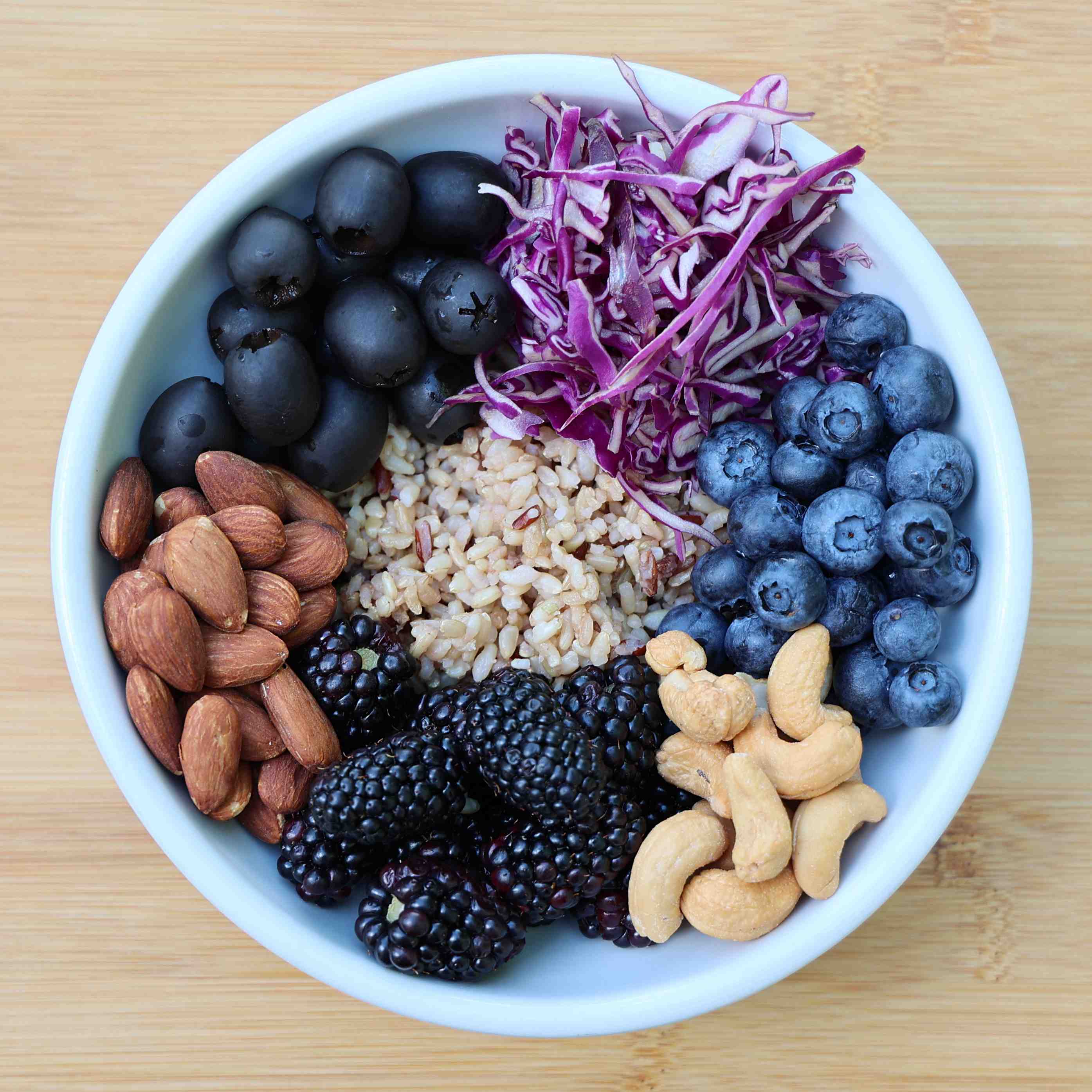
Blue Bowl 12
Brown-red rice, seasonal berries, red cabbage, cashew nuts.
Pasta and Grains
-
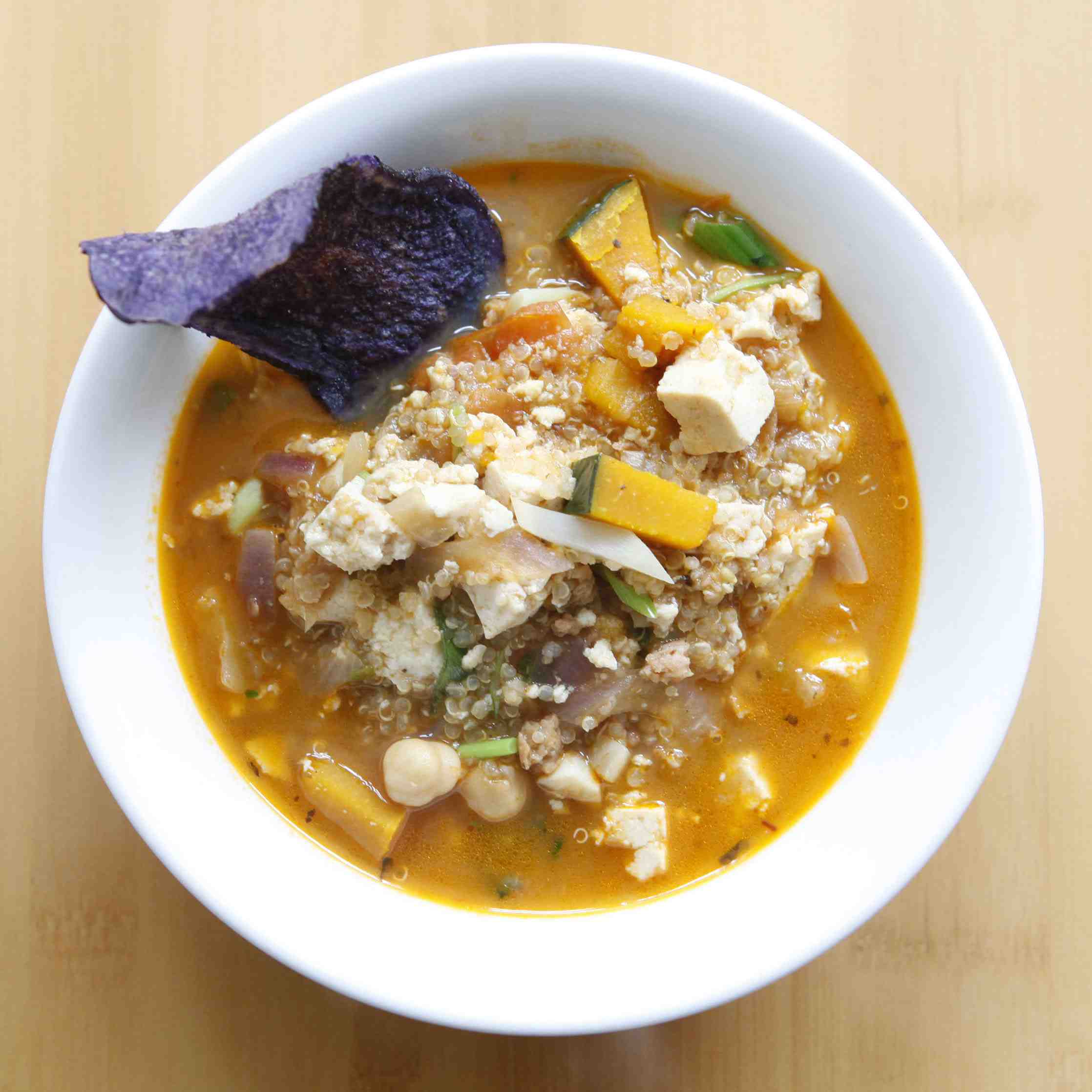
Quinoa Stew 15
Quinoa, tomato, pumpkin, squash, chickpeas, celery leaf, cooked into a thick savory stew. Served with blue corn chips.
-
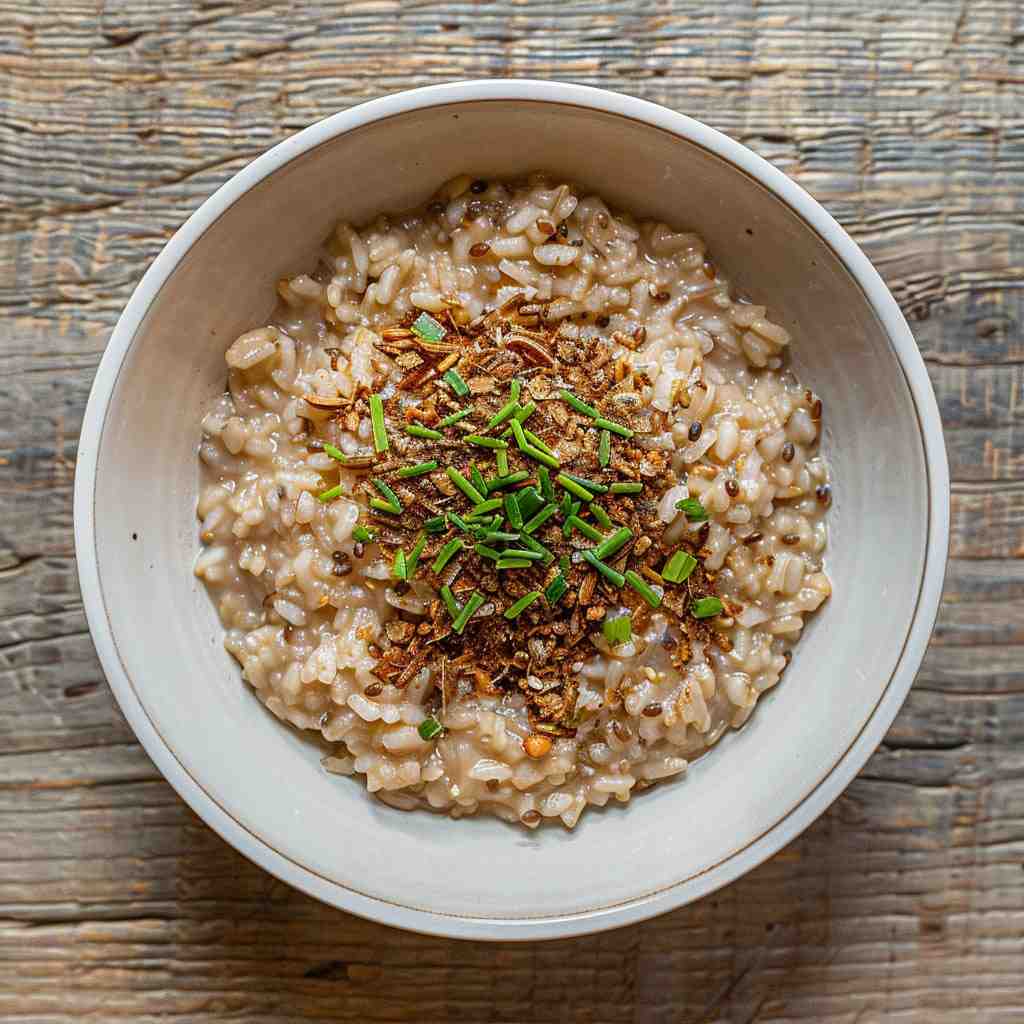
Rice Stew 15
Brown-red rice, pumpkin, squash, chickpeas, celery, in a cooked into a thick savory stew.
Salads
Our selection of salads
-
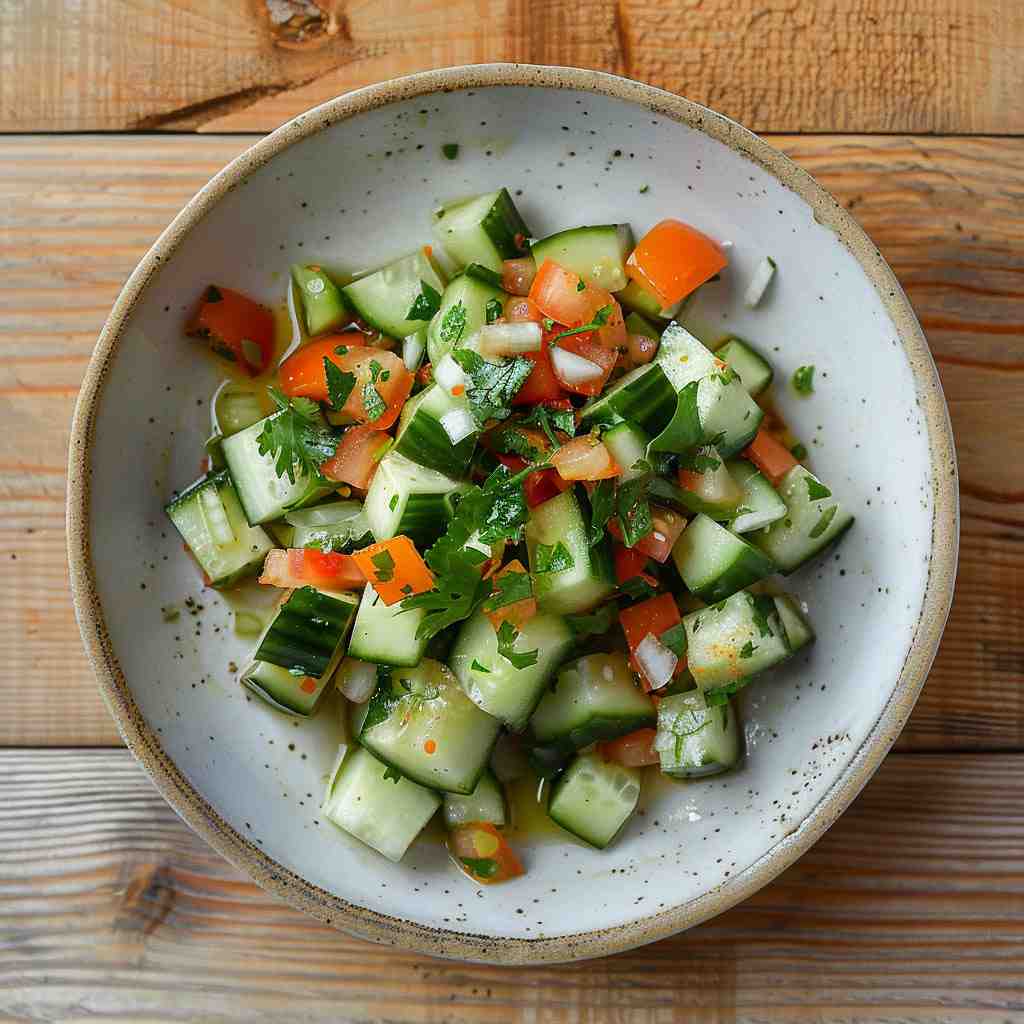
Cucumber Salad 12
Slices of cucumber with tomato, carrot, onion, garlic, cilantro and a tangy sweet and sour dressing.
Soups
Our selection of soups
-
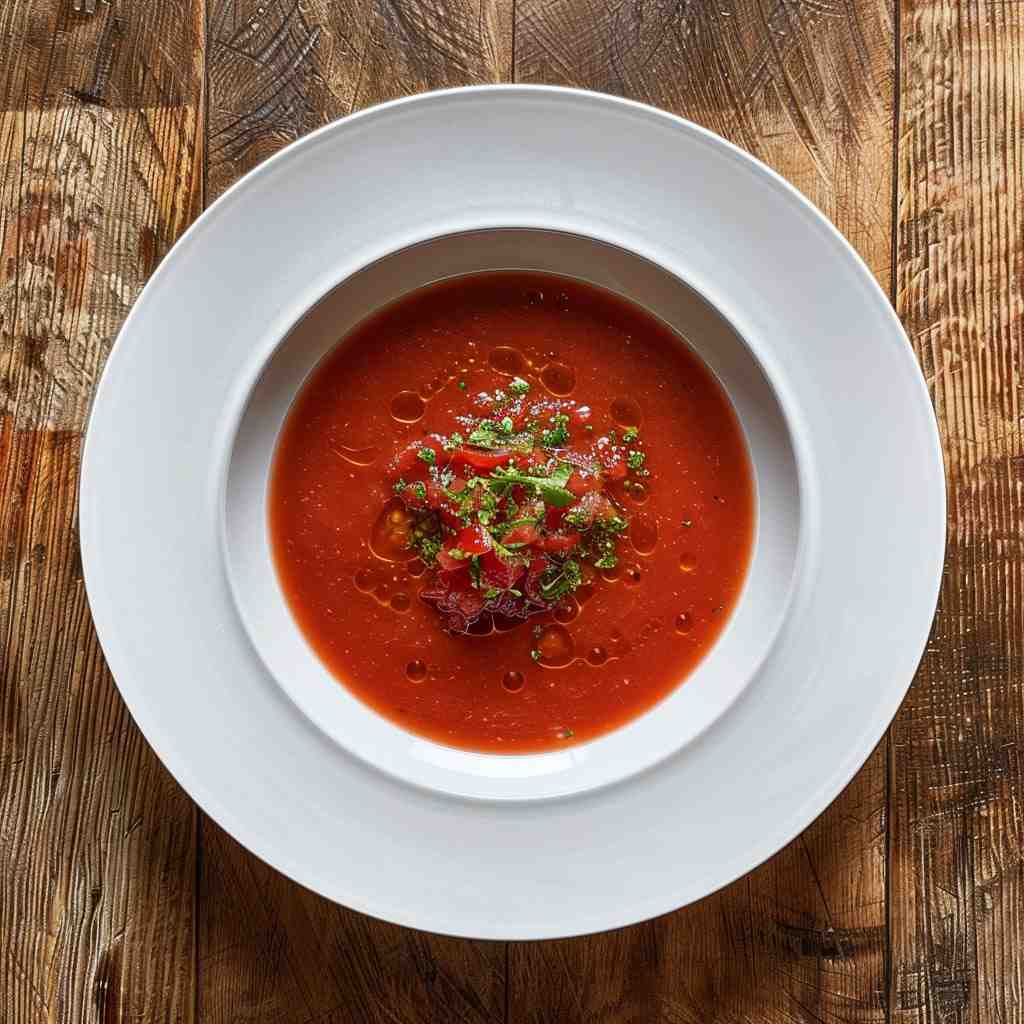
Gazpacho 14
A refreshing cold soup made with tomatoes, watermelon, olive oil, water, fresh lime juice, cucumber, bell pepper and chili pepper.
Additional Notes:
Fruits are an essential part of a fruitarian diet. They are the main source of calories, fiber, vitamins, and minerals. There are several types of fruits that are typically consumed on a fruitarian diet. These include:
1. Berries - Berries are small, juicy fruits that are high in antioxidants and other nutrients. They come in a variety of colors and flavors, including strawberries, blueberries, raspberries, blackberries, and cranberries.
2. Citrus fruits - Citrus fruits are a good source of vitamin C and other nutrients. They include oranges, lemons, limes, and grapefruits.
3. Melons - Melons are juicy fruits that are low in calories and high in water content. They include watermelon, cantaloupe, and honeydew.
4. Tropical fruits - Tropical fruits are exotic fruits that are typically grown in warm climates. They include bananas, pineapples, mangoes, papayas, and guavas.
5. Stone fruits - Stone fruits are fruits that have a pit or stone in the center. They include peaches, plums, apricots, cherries, and nectarines.
6. Apples and pears - Apples and pears are popular fruits that are high in fiber and other nutrients. They come in a variety of colors and flavors, including Granny Smith apples, Gala apples, and Bartlett pears.